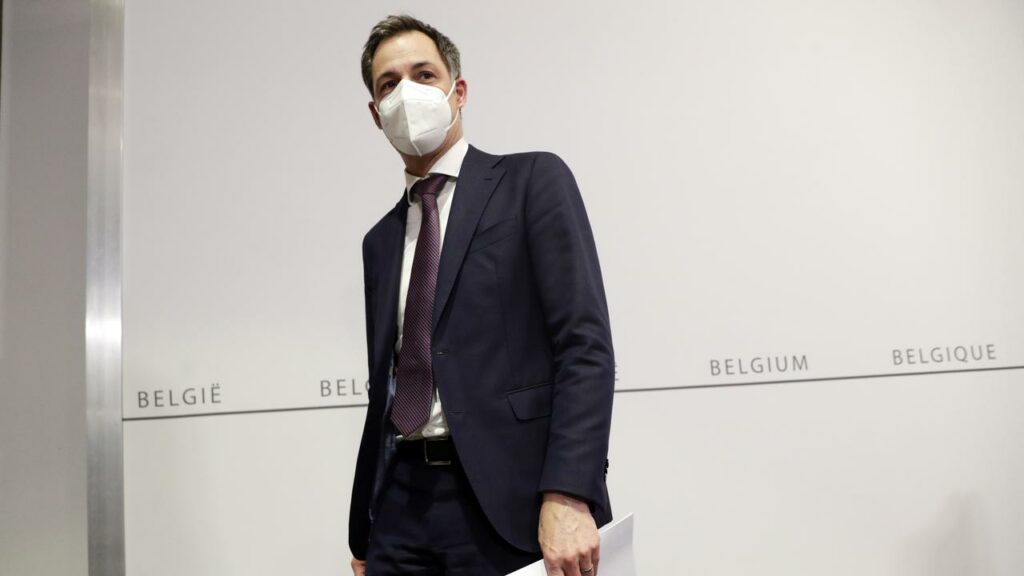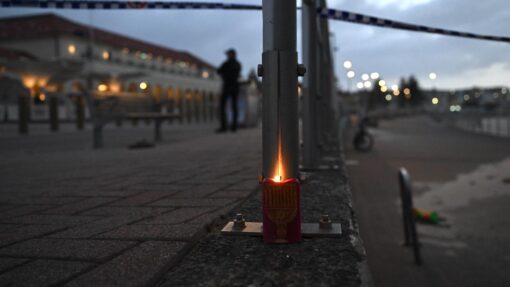Belgium nightclubs open, France masks fall
|

Coronavirus restrictions are set to ease in Belgium, France and Luxembourg as infection and hospitalisation numbers fall.
Belgium announced a further easing of pandemic restrictions on Friday to allow nightclubs to reopen and drop the requirement for primary school pupils to wear masks as cases of the Omicron variant fell from an end-of-January peak.
“The successive waves have not been easy for us,” Prime Minister Alexander De Croo told a news conference, referring to back-to-back Omicron and Delta variant surges.
“But we have got through them and we have got through them together.”
COVID-19 infections have fallen from a record 75,000 on January 24 to an average of about 23,000 in the week to February 7.
Hospital admissions have also declined and the numbers of patients in intensive care was far lower than during previous waves.
From next Friday, nightclubs will be allowed to reopen, bars will be able to extend their hours beyond the current limit of midnight and end curbs on the number of customers per table and concerts will be possible with a standing audience.
Non-essential workers will also no longer need to work from home for at least four days a week and consumers will be able to go shopping in groups of more than two.
The Dutch government said on Thursday it aims to drop most coronavirus restrictions by the end of the month but with COVID-19 passes for access to many public places.
France will ease its mask requirements later this month as coronavirus infection figures fall.
From February 28, the use of masks will no longer be mandatory indoors in places where people are required to provide proof of recovery or vaccination against COVID-19, the health ministry said on Friday.
Sports and cultural venues as well as cinemas, restaurants and cafes will be affected by the change.
In public transport and indoor areas where it is not mandatory to provide proof of recovery or vaccination, which in France includes the entire retail sector, masks will remain compulsory.
The wave of infections due to the Omicron variant is subsiding in France, the health authorities said on Friday.
Within one week, the number of new infections fell by 29 per cent.
In the greater Paris area, which was one of the first regions to be affected by the variant, infections fell by 37 per cent.
The seven-day incidence, which is the number of new infections registered per 100,000 people within one week, fell to 2449 across France and to 1450 in the Paris region.
Hospital admissions fell by 15 per cent in the same period and the number of COVID-19 patients in intensive care units fell by 10 per cent.
As of Tuesday, the period between the basic vaccination cycle of two jabs and the booster will be reduced to four months.
Measures set up in Luxembourg during the last two years to control the spread of the coronavirus are set to be relaxed extensively following a decision by the country’s legislature on Friday.
Unvaccinated people will be once again allowed at bars and restaurants, hotels, and leisure and sports facilities, as long as they provide proof of a negative COVID-19 test.
In addition, the 11pm curfew for bars and restaurants is abolished while discotheques and clubs are allowed to reopen.
There are no longer contact restrictions for private meetings and contact persons will no longer have to quarantine.
The law, which was approved by a 31-28 vote, comes into force late on Friday.
The number of new coronavirus infections in Luxembourg has recently fallen.
Between January 31 and February 6, the seven-day incidence per 100,000 residents was 1733, according to the health ministry.
The week before, the figure was at 2350.
with reporting from DPA
Reuters


